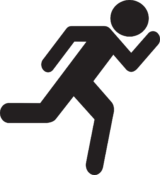The Importance of Sleep in Healing from Severe Injuries
When it comes to recovering from severe injuries, most of us focus on treatments, medications, and therapies. But there’s a hidden hero in the healing process that often goes unnoticed: sleep. In this post, we’ll explore why sleep is so crucial for recovery and how you can optimize your rest to support your healing journey. 😴✨
Table of Contents
1. Introduction: The Healing Power of Sleep
2. How Sleep Affects the Healing Process
3. Tips for Improving Sleep Quality During Recovery
4. The Role of Dreams in Healing
5. Conclusion: Sleep Your Way to Recovery
6. FAQ
Introduction: The Healing Power of Sleep
We’ve all heard the phrase “get your beauty sleep,” but when you’re recovering from a severe injury, it’s more about getting your “healing sleep.” Sleep is not just a passive state of rest; it’s an active period of renewal for our bodies. Whether you’re dealing with a broken bone, surgery aftermath, or any other serious injury, understanding the role of sleep can make a significant difference in your recovery.
How Sleep Affects the Healing Process
During sleep, our bodies undergo crucial processes that aid in recovery:
1. Cellular Repair 🛠️: Sleep is the time when your body repairs cells and tissues. Growth hormones, which play a vital role in healing injuries, are released primarily during deep sleep.
2. Immune System Boost 🦠: A good night’s sleep strengthens your immune system, which is especially important when your body is focused on healing.
3. Pain Management 💊: Proper rest can help in managing pain. Lack of sleep can heighten the sensation of pain, making it harder for your body to recover.
Tips for Improving Sleep Quality During Recovery
Improving the quality of your sleep can enhance your healing process. Here are some tips to help you sleep better:
Create a Sleep-friendly Environment 🌙: Ensure your bedroom is quiet, dark, and cool. Comfortable bedding can also make a huge difference in your sleep quality.
Establish a Routine ⏰: Going to bed and waking up at the same time every day helps regulate your body’s internal clock.
Limit Screen Time 📵: The blue light from screens can interfere with your sleep. Try to turn off electronics at least an hour before bed.
Mind Your Diet 🥦: Avoid caffeine and heavy meals before bedtime, as they can disrupt your sleep.
The Role of Dreams in Healing
While the idea might seem whimsical, dreams can play a part in healing. Dreams often process emotions and can relieve stress, which in turn helps in physical recovery. While more research is needed, many people find that vivid dreams are a common part of the healing journey.
Conclusion: Sleep Your Way to Recovery
Never underestimate the power of a good night’s sleep, especially when you’re on the mend from a severe injury. By prioritizing your rest, you provide your body the opportunity to repair and rejuvenate itself effectively. So, tuck in early, and let your body do its magic while you dream away. 🌟
FAQ
Q: How many hours of sleep do I need for optimal healing?
A: Most adults need 7-9 hours of sleep per night. However, during recovery, your body might require more rest than usual.
Q: Can naps help in the healing process?
A: Yes, short naps can be beneficial, especially if you’re not getting enough sleep at night. Just keep them to 20-30 minutes to avoid disrupting your night sleep.
Q: What if I have trouble sleeping due to pain?
A: Consult with your healthcare provider. They might suggest pain management strategies or medications to help you sleep better.
Q: Is there a connection between diet and sleep quality during recovery?
A: Absolutely! A balanced diet supports better sleep. Foods rich in magnesium and tryptophan can promote relaxation and sleep.
Q: Can physical activity improve my sleep?
A: Yes, light exercises and stretches can help you sleep better. However, consult your doctor to ensure it’s safe for your injury.
